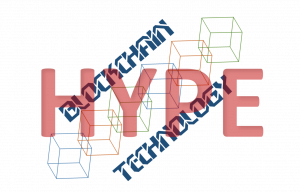With all the buzz about blockchain, one could be excused for thinking the technology is fully mature. However, Robert J. Bowman, Managing Editor of SupplyChainBrain, reminds us, “When it comes to the deployment of blockchain in the supply chain, or anywhere else for that matter, these are still early days.”[1] Why all the hype? The simple answer is potential. Blockchain holds a lot potential to make the supply chain better. Like many others, Mahesh Sashital (@maheshsashital), Co-Founder of Smartereum, discusses blockchain technology as if it has been providing value for years. What he is really discussing is blockchain’s potential. He writes, “Blockchain innovation coupled with other new and existing brings tremendous value to the practice of supply chain management and logistics. In tandem, blockchain solutions can benefit the overall economic aspects of the industry by delivering increased liquidity, freeing working capital and easing settlements. With information and implementation of right blockchain strategies, it would be easier to curb malpractices like counterfeiting and producer exploitation. … Blockchain and other distributed ledger technologies (DLTs) are inherently immutable and transparent. Brought into supply chain management, it provides real time tracking and end-to-end traceability to ensure goods are secure and tamper-free along the chain. One can easily and quickly trace a product right from the retailer back to any point along the chain and also verify claims.”[2]
Blockchain needs to mature
As Bowman notes, “The technology shows promise, but is far from fulfilling its touted role as an indelible system of record for transactions among supply-chain partners.” If you want to know how much promise blockchain technology shows, ask venture capitalists. Jocelyn Aspa reports, “A Research and Markets report indicates that the overarching global blockchain market will grow from $411.5 million in 2017 to a staggering $7.68 billion by 2022, increasing at a compound annual growth rate (CAGR) of 79.6 percent during that time.”[3] In other words, a lot of people see a lot of potential in blockchain technology. Chris Kirchner (@cskirchner), chief executive officer and co-founder of Slync, a blockchain platform provider for the supply chain, told Bowman most companies are still just in the “tire-kicking phase.” The question remains: How fast will blockchain mature in the supply chain? Bowman notes, “There are issues of standards, cost and complexity yet to be addressed.” Linda Tucci (@LTucci) agrees with Bowman about blockchain’s current lack of maturity. She writes, “[Blockchain technology remains] immature, misunderstood, untested in the enterprise, [and] risk-laden.”[4] Nevertheless, she observes, “[Blockchain] needs to be on the CIO agenda.”
Benefits of a mature blockchain
As noted above, the excitement and hype surrounding blockchain technology has resulted in large investments. The technology has stirred the imaginations of analysts and technologists in a number of economic arenas, including the supply chain. James Paine (@JamesCPaine), Founder of West Realty Advisors, writes, “When it comes to supply chain management, [blockchain] could make it easier for big businesses to track the whats, the whens and the whys for every single order on the supply chain. It could lead to the development of interoperable systems that allow you to get a much more accurate view of what’s going on beneath the bonnet of your company. Because blockchain is effectively an incorruptible ledger, it makes it much easier to track your compliance efforts by recording every single step of the way.”[5] Tracking and traceability are two highly touted benefits of blockchain technology.
Adeel Najmi (@AdeelNajmi), Senior Vice President for Products at One Network Enterprises, suggests there are three key implications of blockchain technology for supply chain applications.[6] They are:
1. Single Version of the Truth. Disputes cost both time and money. By providing a single version of the truth (SVOT), blockchain technology can eliminate many disputes. Najmi explains, “Shared ledgers of validated transactions serve as an immutable single version of truth across businesses. Such SVOT ledgers have many applications, such as providing provenance of high-value goods, maintaining a financial audit trail and enabling chain-of-custody solutions. … In fact, pervasive solutions such as chain of custody may well be the ‘killer app’ that actually drives the wide adoption of blockchains. However, it’s important to note that a critical issue of managing data security and confidentiality across participants in blockchains must be tackled before blockchains can be used in broad supply chain applications.”
2. Smart Contracts. Attorney Andrew Rossow (@RossowEsq) asks, “How do we create a smart contract that reduces the friction of the outside world, and gives measurable savings to both parties, providing each with a tangible, economical service?”[7] Najmi answers that question this way: “Smart contracts in blockchains enforce terms and conditions as transactions are conducted between participants. This process drives consistency but, more importantly, it provides common governance and multi-party workflow orchestration across businesses.” Sashital adds, “With smart contracts, … unnecessary intermediaries, which drive up the prices or products, can be eliminated. When producers can sell their products directly to an online market irrespective of the physical distance, and without needless middlemen, they get a fairer portion of profits and end users get products at better prices. Such is the economic impact of a blockchain-facilitated trade.” Rossow concludes, “The advantage of using smart contracts in this space is that everyone knows what they are signing up for ahead of time.”
3. Holistic supply networks. Najmi concludes, “Blockchains shift the focus of technology solutions away from the enterprise onto a network that serves as a system of engagement across companies. This subtle point has, by far, the most profound impact on supply chains, as the industry continues to realize that supply chains are really networks.” Bob Wolpert, Senior Vice President at Golden State Foods, adds, “If you have a business purpose around trust, with all the layers of the supply chain there is increasing risk downstream of not getting the right information or product. Blockchain transaction technology takes the whole supply chain and allows every section to be immutable, attach information, certify and do quality assurance.”[8] In addition, Paine notes, “Blockchain data can be made readily available to auditors and other third-parties such as compliance officers. It’s a more open system, but the fact that it’s a more open system will help to force people to work within the laws and regulations that are in place to protect consumers. The only people who’d suffer would be the ones who were breaking the rules.”
Summary
How fast will blockchain mature in supply chain operations? I can’t answer that question with any precision. I do know, with all the investment and interest in the technology, it will mature faster than some analysts estimate. Mike O’Brien observes, “The advent of blockchain technology as a tool to enable secure, accurate sharing and verification across entire supply chains is fast approaching.”[9] Hastening its implementation will be companies like Walmart. Wolpert “expects Walmart to begin implementing vendor requirements for blockchain in the near future to ensure greater supply chain accuracy and visibility.”
Footnotes
[1] Robert J. Bowman, “Blockchain’s Coming to the Supply Chain – Eventually,” SupplyChainBrain, 4 June 2018.
[2] Mahesh Sashital, “Blockchain For Supply Chain: A Holistic View,” Smartereum, 15 May 2018.
[3] Jocelyn Aspa, “Blockchain Technology Stocks,” Investing News, 22 May 2018.
[4] Linda Tucci, “Gartner on blockchain: Questions to ask and lots of caveats,” TechTarget SearchCIO, 27 April 2018.
[5] James Paine, “How Blockchain is Disrupting Supply Chain Management,” Inc., 28 May 2018.
[6] Adeel Najmi, “Why Your Supply Chain Needs Blockchain,” The Network Effect, 7 March 2018.
[7] Andrew Rossow, “A Trust Architecture for the Supply Chain of Tomorrow,” Null TX, 28 April 2018.
[8] Mike O’Brien, “Blockchain: Coming to a Supply Chain Near You,” Multichannel Merchant, 24 April 2018.
[9] Ibid.





